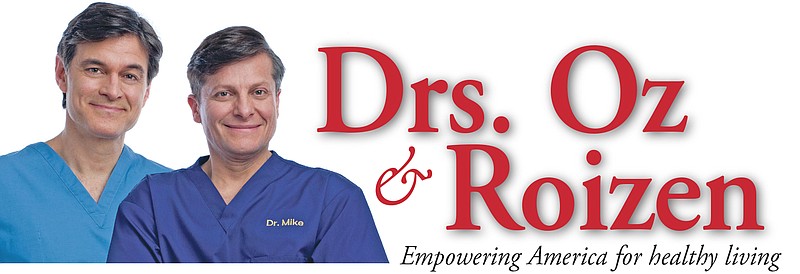Vitamin D - the sunshine vitamin - is not simply a vitamin (or maybe not a vitamin at all). Recently endocrinologists and nutritionists have recognized that it's a prohormone! Now that doesn't mean it is a professional hormone (like The Rock?) - it means it's converted in the body into a hormone. While you need to get most of the other 12 named vitamins from food, only about 10% of the vitamin D the body needs comes from what you eat (such as D-fortified dairy products and wild caught salmon). Your body is able - and has to - make the rest. The process starts in the kidney.
What does vitamin D, er, prohormone D do? Its job in the body turns out to be far, far more complex - and life-extending - than we used to know. The big headline is that new research shows it's significantly protective if you happen to catch COVID-19. An observational study looked at 77 people, mean age 88, in a ward where everyone had COVID-19. The goal was to see if taking vitamin D supplements had an impact on their ability to survive the infection over a 14-day period of time. The research, published in the journal Nutrients, found that elderly people who had been taking vitamin D regularly for 12 months before becoming sick had a 93.1% survival rate compared to 81.7% survival rate in the more recent supplementers. Those who did not take any D had a survival rate of 68.7%.
The long-term D-takers were getting doses of 50,000 IU vitamin D3 per month (about 2,000 IU a day) or doses of 80,000 IU or 100,000 IU vitamin D3 every two to three months. The recent supplementers had not regularly gotten supplements but did receive an oral dose of 80,000 IU vitamin D3 within a few hours of their diagnosis of COVID-19.
These findings are echoed in a Spanish pilot study: Among 76 patients hospitalized for COVID-19, 50 were treated with vitamin D and only one then required admission to the ICU. But in a group of 26 patients who did not get vitamin D, 13 had to go into intensive care. How does D do it? Another study indicates D's infection-battling powers come in part from its effect on gene expression. They're smiling for sure.
But that is not all D can do for you. According to the Hormone Health Network, part of the Endocrine Society, not only is it essential for regulation of blood calcium levels and bone strength, it plays a role in immune strength, and heart and mental health. Vitamin D also helps regulate the stress hormones adrenaline and norepinephrine and the production of the neurotransmitter dopamine in the brain. If you have a vitamin D deficiency you are at increased risk of infections, cardiovascular disease, obesity, diabetes, certain cancers, chronic stress-related physical and emotional issues and depression.
How do you get enough D? It isn't found naturally in many foods, although fatty fish like wild-caught salmon do contain a good dose. One study found that 3.5 ounces contains around 470 to 1,400 IUs of D, while farmed salmon has a quarter those amounts. Plus, D is added to dairy products and produced in mushrooms through artificial light exposure. But the main source comes from your skin's exposure to sunlight.
Unfortunately, today's lifestyles are sedentary, screen-centered and indoors! That's the opposite of what's needed for a healthy, happy life - or sufficient vitamin D. To make sure you have a healthy blood level of D, you need to get outdoors more! Your 10,000 steps a day is a great move. And don't worry about sunscreen. Although findings are not definitive, it appears that good protection from skin cancer (SPF 35 from zinc oxide) does not prevent you from making at least some vitamin D.
So, do get tested to determine your D blood level and take the supplementation your doctor may recommend. The results can D-light you.
Mehmet Oz, M.D. is host of "The Dr. Oz Show," and Mike Roizen, M.D. is Chief Wellness Officer and Chair of Wellness Institute at Cleveland Clinic. To live your healthiest, tune into "The Dr. Oz Show" or visit sharecare.com.
(c)2021 Michael Roizen, M.D. and Mehmet Oz, M.D.
King Features Syndicate

